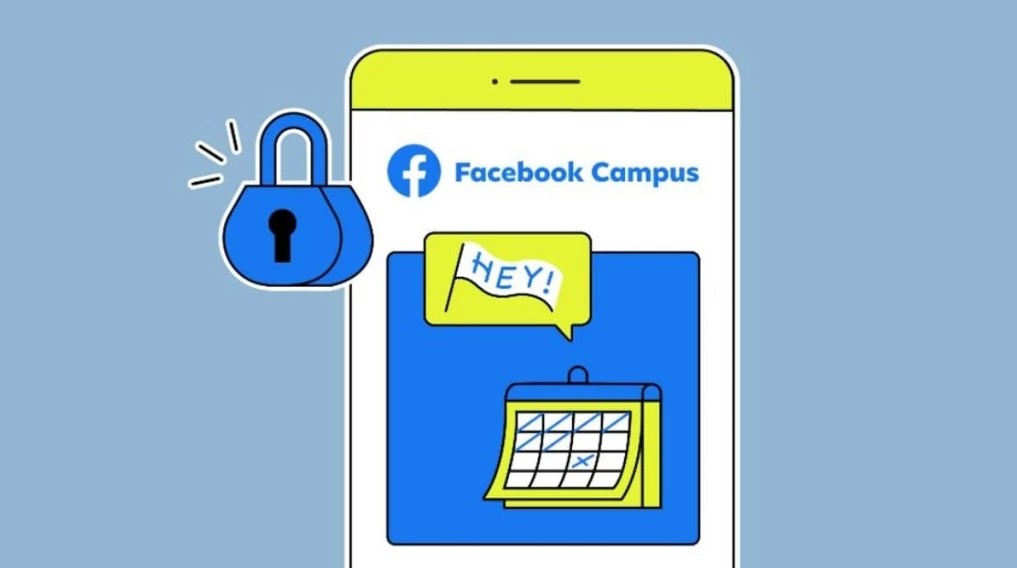Facebook shutting down its student-only social network, Campus, was a big letdown for many. The social media platform created Campus to help college students access relevant content regarding campus events.
Now, students must find other social media channels similar to Facebook Campus. Despite having many active users, Campus was not as popular as other social media platforms. This article will discuss what Campus is, why it was created, its features, how it worked, and why the platform was eventually shut down.
Table of Contents
What Is Campus?
Campus was a Facebook-owned social network specifically designed for college students. The Campus pilot project was launched in September 2020 and was Facebook’s attempt to return to its root of a student-focused social network.
Campus was a product of Facebook itself. It was an extra feature you could find on your regular Facebook profile. Nonetheless, you got to create your own Campus profile, which was different from the standard profile.
This college social network was similar to a Facebook page where you could connect with other users (in this case, students) and receive updates regarding student events on a feed. However, the platform was unlike Facebook, where people struggled to get organic likes and followers. Instead, students focused on their education.
Apparently, Facebook likes free trial products rare. Hence, Campus was free for all students eligible to join the platform.
Why Did Facebook Create Campus?
Typically, students would connect with each other using Facebook Groups and Events to see what was happening on campus. Hence, Facebook wanted to give college students a platform that specifically catered to their need to connect with their college community.
The idea behind this social network was to give college students a place to socialize without family members or outsiders joining in. It allowed them to connect with other classmates over shared classes, interests, and a specific type of content. Therefore, in order to access this platform, students required their college email (@.edu address) and graduation year. This feature was mostly benefit those partaking in partial or full-time remote learning.
Interestingly, this might not be the only reason why Facebook designed this student-focused platform. According to the Pew Research Center, the number of youth using Facebook has been dwindling since 2015. Therefore, Campus could have just been a way for Facebook to attract adolescents and remind them that Facebook is more than just a platform for the older generation.
Facebook likes experimenting with new products to attract new users and keep older ones engaged. So, it should not come as a surprise that they created Campus.
Campus Features
The platform hosted features such as:
- Campus-Only News Feed: A space where students could get updates in a college-specific feed. These updates came from classmates, events, and groups.
- Campus Directory: This feature allowed students to find and meet other classmates. Students could find their classmates based on major, class, year, etc.
- Campus Chats: These are chat rooms that students could create for their clubs, dorms, or other groups they belonged to within Campus.
Despite these features, Campus did not have a standalone app; you could only find it in Facebook’s “More” section. That is probably why most people have not heard of it.
Additionally, Campus was not accessible to all students across the United States. You could only find it in a finite number of educational institutions (about 204), such as Brown University, Johns Hopkins University, Scripps College, and others.
Campus Is Shut Down

After running for less than two years, Campus was shut down on March 10, 2022. The news came as a shock and was announced through an in-app message. Social media consultant Matt Navarra also announced the news on his Twitter account.
All data, including Campus profiles, posts, and groups, were deleted. Luckily, students were informed beforehand and were allowed to view and download their data using an export tool.
Prior to the closure of Campus, the social network was doing pretty well. However, the team’s marketing tools were a bit too aggressive. In 2021, a Twitter user commented on how Facebook was pushing them to join Campus despite being faculty and not a student. This is just one example from many instances.
Regardless, Campus was gaining some traction. As of mid-2021, Campus had integrated 60 U.S. educational institutions into the network, and more were underway.
Interestingly, Facebook has shut down most of its experiments created by the New Product Experimentation (NPE) Team. However, they have not lost hope in the team and have partnered with them again to bring about new projects. These new projects will focus less on following trends but will try to shine a light on communities that are soon to be forgotten.
The Reason Why Facebook Shut Down Campus
According to the in-app message sent to users, Facebook created the Campus pilot to bring college communities closer together. But ultimately, Facebook Groups is still the best way for them to do that.
A spokesperson from Facebook also commented that Campus was designed to replace Facebook Groups, a platform that students generally used for college.
Therefore, they wanted to discover if a dedicated product could work better than what was already there. Furthermore, Facebook announced the closure of Campus a few days after Instagram declared the shutdown of IGTV, a standalone app. Canceling these products added to a long list of failed apps and services that Meta has pulled from the market.
It just goes to show that Meta is willing to take risks and release all sorts of products. But, nevertheless, the brand is not afraid to pull these products if they do not perform optimally.
Conclusion
There aren’t many social networks like Campus. Unfortunately, the platform was not able to withstand the test of time.
While the feature was designed to serve a specific purpose for college students, they did not quite need it. This is because Facebook Groups already exists and helps connect students.
Ultimately, the exclusive access that came with Campus was not enough to sway students.
- How to Create a Winning Social Media Strategy for Your Business? - Outubro 12, 2023
- Elevate Your Online Presence: Tips for Better Social Media Use - Outubro 12, 2023
- The Ultimate List of Top Social Media Apps and Sites - Outubro 12, 2023

